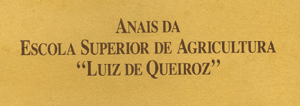This paper deals initially with the role of mineral fertilizers in increasing agricultural production: the relationship between the two variables is illustrated within global, regional national and local contexts. The pattern and trends in fertilizer usage in Brazil are presented next, namely: increase in consumption in the period 1950/72; regional distribution; consumption as related to crops and cultivated land. It is shown that in less than a quarter or century fertilizer use has increased in the country nearly 12 fold, whereas world consumption was raised 7 fold, thus exceeding estimates based in several criteria. Steps taken to secure the raise in fertilizer consumption above the historical trend are discussed: research experience for outlining fertilization recomendations; the transfer of the knowledge to the farmer by the extension work both official and private; the credit policy and special incentives for the purchase of fertilizer; the national policy for minumum proces of agricultural products; the implantation of a national fertilizer industry. It is considered that the Brazilian experience adapted to similar local conditions in other developing countries, presents a possibility for achieving beneficial results without inflationary reflexes in the economy.
